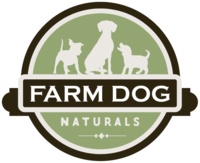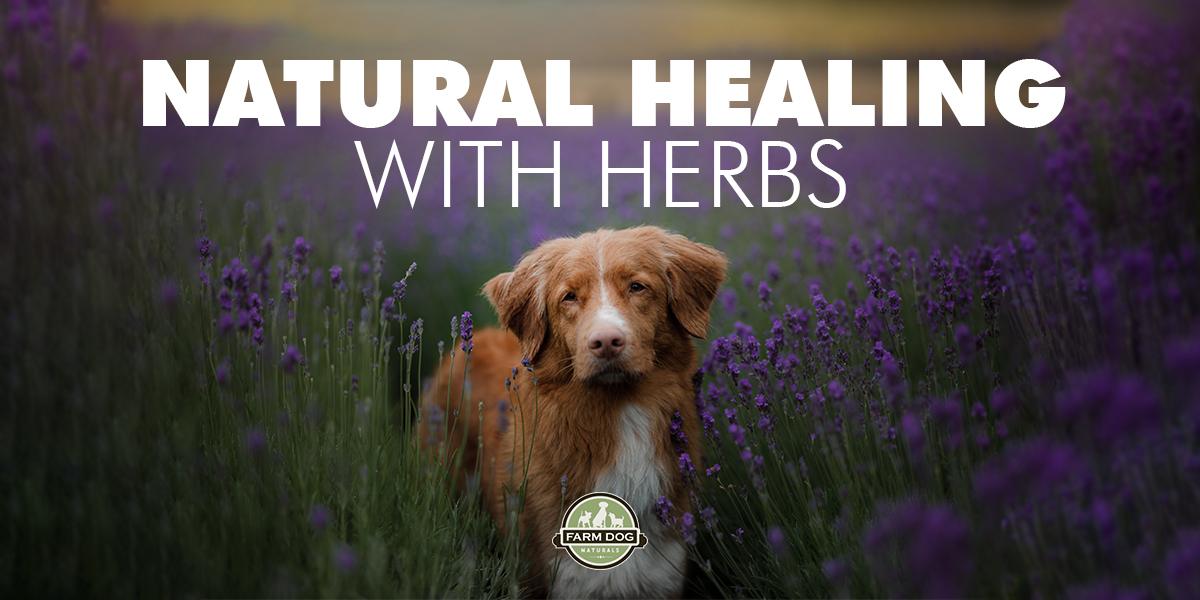Did you know that dog skin problems are the #1 reason pet parents seek veterinary care in United States? It’s so sad to see so many dogs suffering with skin issues.
The skin is the body’s largest organ. Unfortunately it’s often mistakenly separated from the rest of the body as its own unique system, operating in isolation.
To me this view is maddening! From a holistic perspective, the skin functions as a complex integrated organ communicating with the rest of the body through systemic pathways. These pathways include the nervous, kidney, liver, digestive and immune systems. You can’t separate the health of the skin from the health of the body as a whole. It’s all interconnected…
And when you treat a skin condition without remembering that, you’re not looking at the full picture. It’s time to take a step back and evaluate those conventional methods of healing.
Today I want to share my favorite herbs for healing dog skin problems – and looking from the inside out!
Common Dog Skin Problems
Itching is one of the most obvious symptoms if your dog has a skin condition. And it’s what usually prompts pet owners to head to the vet.
The most common types of dog skin conditions include:
- contact allergies
- bacterial infections
- yeast infections
- food sensitivities
- mange
- parasites
- hot spots
The standard of care in Western veterinary medicine for most skin issues, acute or chronic, involves antibiotics, anti-fungals, immunosuppressants, and corticosteroids. When a dog is itching, many vets will immediately recommend one of these things, often without looking deeper, as I mentioned before.
The problem is, this regimen of eradication and suppression damages the immune system and often makes matters worse. The treatment suppresses the symptoms and they go away. The treatment stops (without actually having addressed the underlying issue), and the symptoms come back. Treatment is resumed…
It becomes a vicious cycle of suppression and regression. Suppression of symptoms confuses the immune system, pushing the imbalance deeper into vital organs like the liver, kidneys, pancreas, nervous and digestive systems.
See the in connections?
As healers, we can minimize these symptoms with herbal care but by no means should we suppress them unless it’s a matter of life or death.
My Top Herbs for Healing the Skin
These my favorite herbs for chronic dog skin conditions. I use many externally and internally to quell symptoms and bring about systemic balance. (Don’t worry – I have the directions for each method below!).
1. Dandelion (Taraxacum officinale)
- Parts used: whole plant, flowers, leaves, root.
- Methods: oil, tincture, infusion, decoction, fresh, dried.
- Externally: use as an oil or salve for warts and other skin tags.
- Internally: liver restorative, kidney support, nutritive, anti-allergy, safe for long-term use. My dogs love dandelion fresh and ground up in their raw diet in the spring.
2. Ashwagandha (Withania somnifera)
- Parts used: whole plant, leaf, dried root.
- Method: tincture, decoction, infusion and dried root.
- External use: simmer leaves for 5 minutes and use as a poultice to bring down swellings.
- Internal use: supports the nervous system and is anti-inflammatory.
3. Calendula (Calendula officinalis)
- Parts used: Flowers.
- Method: infusion, tincture, oil, fresh or dried flower.
- External use: massage oil or salve for deep dermal penetration to increase blood flow and circulation. Calendula compresses are excellent for anal swellings, improve lymphatic drainage, dry weeping skin.
- Internal use: anti-ulcer, anti-tumor, supports the liver and lymphatic system, anti-inflammatory, soothes the digestive system and gently stimulates the immune system. Calendula is high is water content so it is best to dry them before use unless making a flower essence. Avoid giving internally during hot weather as Calendula is warming.
4. Nettles (Urtica dioica folia)
- Parts used: leaf, root, seed.
- Methods: sautéed fresh, tincture, infusion, decoction, dried herb, fresh juice.
- External: Fresh juice as a wash for inflammation and to stop bleeding or weeping.
- Internally: nutritive, anti-inflammatory, kidney support. An excellent remedy for environmentally reactive dogs, safe for long-term use.
5. Burdock Root (Articum lappa)
- Parts used: seed and root.
- Method: tincture, decoction, dried root.
- External use: cooled decoction wash for hair loss and dry skin.
- Internal use: body cleanser, liver support, hormone balancer, anti-inflammatory and prebiotic. Burdock mixes well with dandelion and red clover to help clear toxins.
6. Chickweed (Stellaria media)
- Parts used: flowers, leaves, stems.
- Method: tincture, oil, infusion, fresh or dried.
- External use: simmer leaves to make a poultice for treating hot spots, ulcerated tissue, all types of sores, and dry skin. I use this on the top of the tail where fleas like to bite.
- Internal use: lymph stimulant, anti-tumor, digestive support, anti-inflammatory, prebiotic. Excellent alternative to calendula in the summer as chickweed is cooling.
7. Cleavers (Gallium aparine)
- Parts used: leaves and above ground stems.
- Method: tincture, infusion.
- External use: Fresh juice wash for skin crusts and skin cancer. Can be used as a poultice when pulverized and full of juice for stopping bleeding and wounds. Cleavers quickly reduces inflammation.
- Internally: supports lymphatic system, removes excess fluids, anti-tumor and makes an excellent systemic tonic for chronic imbalances.
8. Yellow Dock (Rumex crispus)
- Parts used: leaves and root.
- Methods: infusion, decoction, tincture, dried herb, oil.
- External use: fresh cooled infusion can treat burns, itching, wounds and insect bites.
- Internal use: juice can be used for burns humectant, liver support, small intestine and kidney support. Use as a single herb under the supervision of an herbalist or holistic vet. Not for long-term use.
How to use the Herbs
You can use all of these herbs in a variety of ways. I’ve listed the best methods under each herb. Here’s how to make each one:
1. Tincture
- Give 1 drop for every 25 pounds, two to three times per day.
2. Infusion
- Make a hot tea using 1 oz of herb in a quart of filtered water. Boil water, add to herbs, cover and steep for 30 minutes. Allow to cool.
- Give 1 tbsp for every 25 pounds divided for morning and evenings with food unless otherwise noted.
3. Decoction
- Add 1 oz root, bark, seed to a quart of filtered water. Cover and simmer on low for 1 to 2 hours.
- Give 1 tbsp for every 25 pounds divided for mornings and evenings with food.
4. Poultice Or Compress
- Chop up fresh plant material. For poultice, apply directly to the affected area or wrap in clean gauze and apply.
- For compress, apply herbal mixture/tincture/infusion/decoction to clean cotton cloth and cover the affected area. Can be applied hot and cold.
The release of toxins through the skin is the body’s way of trying to rid itself of disease. Think about it like an early warning system. If we pay attention, it can alert us to chronic disease and imbalances inside your dog’s body. With the right herbs and a little patience, we can help manage and heal dog skin problems without overtaxing and damaging the body.

